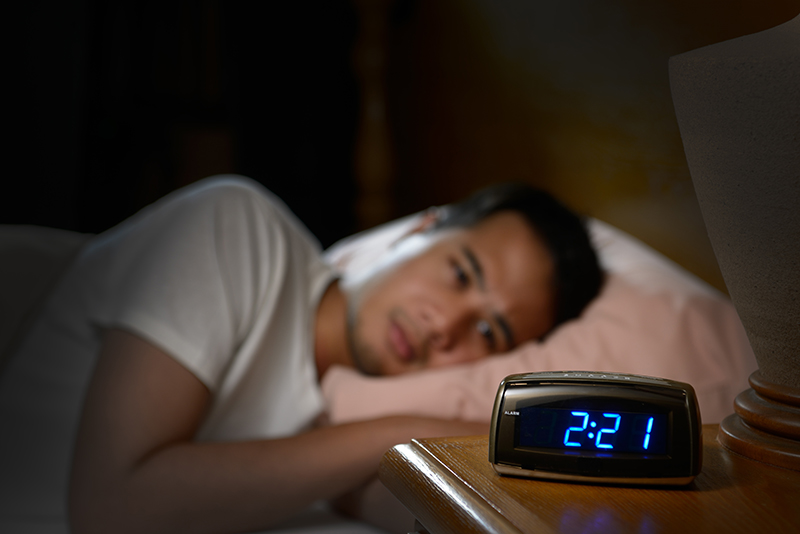Delayed Sleep Phase Disorder (DSPS) is a disorder of the circadian rhythm. With this chronic sleep disorder a person’s internal body clock is delayed in regard to the natural fall sleep at night/wake in the morning cycle. If you think you may have DSPS, contact a sleep doctor in Jacksonville who can help you find ways to manage your symptoms and get a better night’s sleep.
What is Delayed Sleep Phase Disorder?
DSPS delays an individual’s sleep by two or more hours past the conventional bedtime. Since they fall asleep so much later, they also find it difficult to wake at a scheduled time. Once they fall asleep, they usually experience a normal quality of sleep. However, the shortened period of sleep poses many challenges for students and professionals to get an adequate amount of sleep. They may function on just a few hours of sleep during the week and attempt to “catch up” on the weekend when they’re not tied to a schedule.
For this reason, DSPS can begin to interfere with the person’s quality of life, although they may find it difficult to get out of bed in the morning and hard to function normally. DSPS may mimic insomnia in some ways, but it’s an entirely different disorder. That’s why seeing a sleep doctor in Jacksonville for accurate diagnosis is important. Some of the signs and symptoms of delayed sleep phase disorder are:
- Trouble falling asleep until late at night.
- Difficulty waking at desired time in the morning.
- Sleep quality and duration is normal when able to sleep on own schedule, although delayed from normal societal standards.
- Depression.
- Behavioral problems in children and adolescents.
What Causes DSPD?
The exact cause of DSPD is not known, but DSPD is much more common in teens and adolescents, with 7-16% of them struggling with the disorder. Of people complaining of insomnia, up to 10% are found to have DSPD, and people who consider themselves “night owls” are more likely to develop this sleep disorder.
Treatment for DSPD
The severe sleep deprivation that can result from DSPD can lead to long-term health effects. These include impaired immune system, depression, anxiety disorders, weight gain, diabetes and fibromyalgia. Seeking treatment from a sleep doctor in Jacksonville is important to avoid the negative effects of this disorder. There is no permanent cure for delayed sleep phase disorder, but there are ways to manage it.
- Following good sleep hygiene is key. Keep a comfortable sleep environment, avoid caffeine and alcohol and stick to a consistent bedtime schedule.
- Light therapy and light restriction have been found effective in managing DSPD. These help by shifting the wake schedule in the morning with bright light and in the evenings with darkness.
- The use of melatonin to regulate circadian rhythm has been proven effective for some.
Contact a Sleep Doctor in Jacksonville
Don’t put off seeing a sleep specialist if you’re suffering from a sleep disorder like DSPD. With proper diagnosis, sleep disorders can be treated and managed to improve your quality of life. Dr. Nassar and his team at the Jacksonville Sleep Center have decades of experience in treating disorders including sleep apnea, insomnia, restless leg syndrome and DSPD. Call (904) 854-6899 for your consultation.
Sources:
http://dspsinfo.org/






